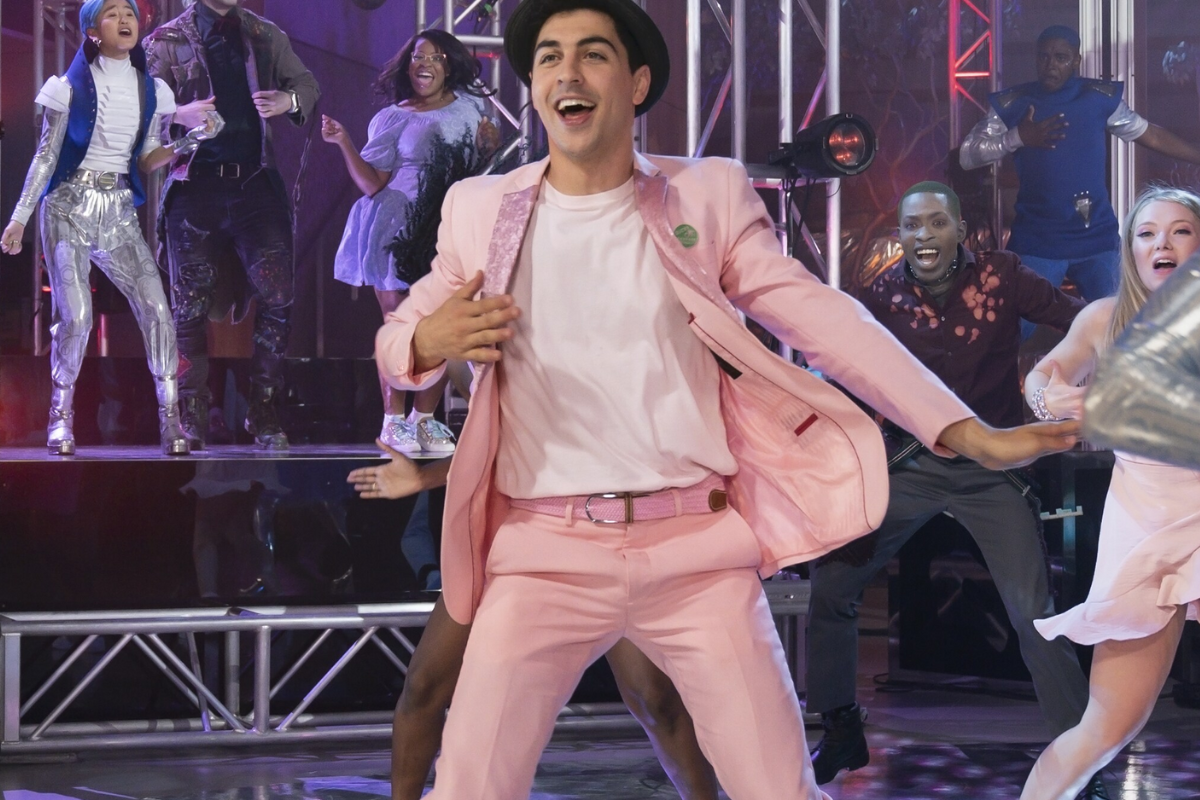The latest craze sweeping my neighborhood among kids of a certain age is Disney’s Z-O-M-B-I-E-S franchise – the fourth installment of which was released this summer. If you’ve never heard of it, think: sci-fi “High School Musical,” where humans, zombies, werewolves and all other manner of supernatural teens take on a gamut of challenges with song and dance.
Honestly, I think it’s pretty cute, and the characters deal with some nuanced challenges that are obviously analogous with real-life race-, gender- and class-themed issues.
For instance, in the first movie, tensions are high when the local (human) high school becomes integrated with the zombie school. The zombies deal with serious discrimination and continued segregation straight out of our own time.
Even beyond these major plot themes, diversity was clearly taken seriously in the writer’s room. There are a few characters who are coded as queer, including one main character in the third movie whose pronouns are they/them. Boys are cheerleaders. Girls can play football. It’s refreshing.
And, like any good Jewish mother, I looked into which actors are Jewish, and was pleasantly surprised to see that a number of the main characters, including Milo Manheim, who plays Zed, the male protagonist, and prominent cast members Trevor Tordjman and Ariel Martin are members of the tribe.
The Jewish representation, however, has its limits.
In the fictional world of the Z-O-M-B-I-E-S franchise, only one of the characters is explicitly Jewish. It is not the lovable main zombie Zed, nor is it Martin’s quirky werewolf character. Rather, Jews get Bucky (played by Tordjman).
Bucky is… not great. Played by Tordjman, he is arguably the main antagonist of the first two films, where he loudly pushes back against progress and spews discriminatory rhetoric against the non-human characters; he is an actual segregationist.
Even to other humans, he is constantly mean, judgmental and dismissive toward anyone who is not, well, him. He is deeply self-centered, predictably neurotic and also quite cowardly. If the other characters represent progress, equity and diversity, Bucky is all that is opposed to those things. Closed-minded and entitled, all he cares about are his own self-interests. Even if he does provide some moments of comedic relief, Bucky is the butt of the joke.
What is frustrating is that there is no real reason that Bucky needs to be Jewish. In fact, his Jewishness is not mentioned in the films, but only in “Zombies: The Re-Animated Series,” a spin-off show. In a Christmas-heavy holiday episode, Bucky has a few lines in a song that reveal he celebrates Hanukkah, not “Z-mas,” like the rest of the characters.
Given that this Jewish representation is so minor — there’s no actual Hanukkah storyline — there is no real reason why it couldn’t have been given to one of the other Jewish actors whose characters are portrayed in a more positive light.
Instead, we get Bucky, singing “Oh, dreidel, dreidel, dreidel/Yes, aren’t we all so lucky?/That we got lights for all eight nights/So we can look at Bucky!” as a dreidel with his face on it spins.
Have I — thanks to my daughter — seen Z-O-M-B-I-E-S way too many times? Definitely. Am I splitting hairs about the franchise’s Jewish representation? I don’t know.
I’m well aware that there are much bigger injustices in this world for me to worry about. Yet I find it endlessly frustrating that in a series about inclusivity (that has a great cast of Jewish actors, no less) all we get is Bucky. It’s not how I want my daughter — or her non-Jewish friends — to see Jews portrayed.








